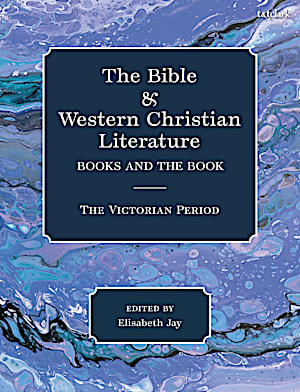



johndoe@gmail.com
Are you sure you want to reset the form?
Your mail has been sent successfully
Are you sure you want to remove the alert?
Your session is about to expire! You will be logged out in
Do you wish to stay logged in?
Explore the Bible’s enduring influence on Western literature across millennia. From the allegorical depths of early Christian exegesis to the poetic reimaginings of Romanticism, The Bible and Western Christian Literature is a landmark series that traces how Scripture has shaped – and been shaped by - Western literary culture. Spanning Late Antiquity to the present day, this five-volume series offers rich insights into how biblical texts have inspired, challenged, and transformed writers, thinkers, and theologians. Whether you're a scholar, student, or curious reader, this series reveals the Bible not just as a sacred text, but as a foundational literary force.

This volume opens with a sweeping introduction to the foundational hermeneutics of early Christianity. Ian Levy explores how figures like Irenaeus, Origen, Jerome, and Augustine developed interpretive frameworks that placed Christ at the center of salvation history. Readers are drawn into the intellectual rigor of allegorical and typological readings, the rise of monastic and scholastic exegesis, and the dynamic interplay between Jewish and Christian interpretive traditions. The chapter sets the stage for understanding how the Bible became a literary and theological cornerstone in medieval Europe, rich in symbolism, layered in meaning, and central to cultural identity.
Click here to read Levy’s introductory chapter.

Sophie Read’s introduction captures the seismic shift in biblical engagement during the Renaissance and Reformation. With the rise of vernacular translations and the printing press, Scripture became a public and personal text, shaping everything from sermons to Shakespeare. The chapter explores how the Bible influenced poetic form, rhetorical style, and literary imagination, while also becoming a site of theological conflict and cultural transformation. From Tyndale’s pioneering English Bible to the King James Version’s literary legacy, this volume reveals how Scripture became embedded in the very fabric of early modern life.
Click here to read Read’s introductory chapter.

In this compelling introduction, David Jasper charts the Bible’s journey through the Enlightenment’s rational critique and Romanticism’s poetic revival. The chapter examines how thinkers like Coleridge, Blake, and Shelley wrestled with biblical authority, transforming Scripture into a source of imaginative power and existential inquiry. From historical criticism to visionary reinterpretation, the Bible emerges as both a contested text and a creative wellspring. This volume invites readers to consider how literary figures redefined sacred narratives, often blurring the lines between theology, philosophy, and art.
Click here to read Jasper’s introductory chapter.

Elisabeth Jay’s introduction places the Bible at the center of Victorian intellectual life, exploring its role as both moral guide and contested cultural text. She examines how thinkers like Matthew Arnold and John Ruskin navigated tensions between faith and modernity, while writers such as George Eliot and Tennyson infused their works with biblical language and imagery. Against a backdrop of scientific discovery, higher criticism, and movements from Anglican tradition to radical freethought, Jay reveals the nineteenth century as an era of reinvention—where Scripture remained a source of inspiration and debate, shaping literature’s engagement with morality, progress, and identity.
Click here to read Jay’s chapter in full.

Kevin Hart’s introduction begins with James Joyce’s playful call to “Remove that bible,” capturing modernism’s drive to reinvent sacred texts. From Eliot’s Ash-Wednesdayto Bonnefoy’s meditations, the chapter explores how twentieth-century writers reimagined Scripture, sometimes reverently, sometimes subversively, across poetry, fiction, drama, and popular culture. Far from fading, the Bible remains a dynamic force, renewed through translation projects, literary theory, and global voices like Kafka, Celan, and African American poets—challenging, provoking, and inspiring across languages, genres, and generations.
Click here to read Hart’s complete introduction.